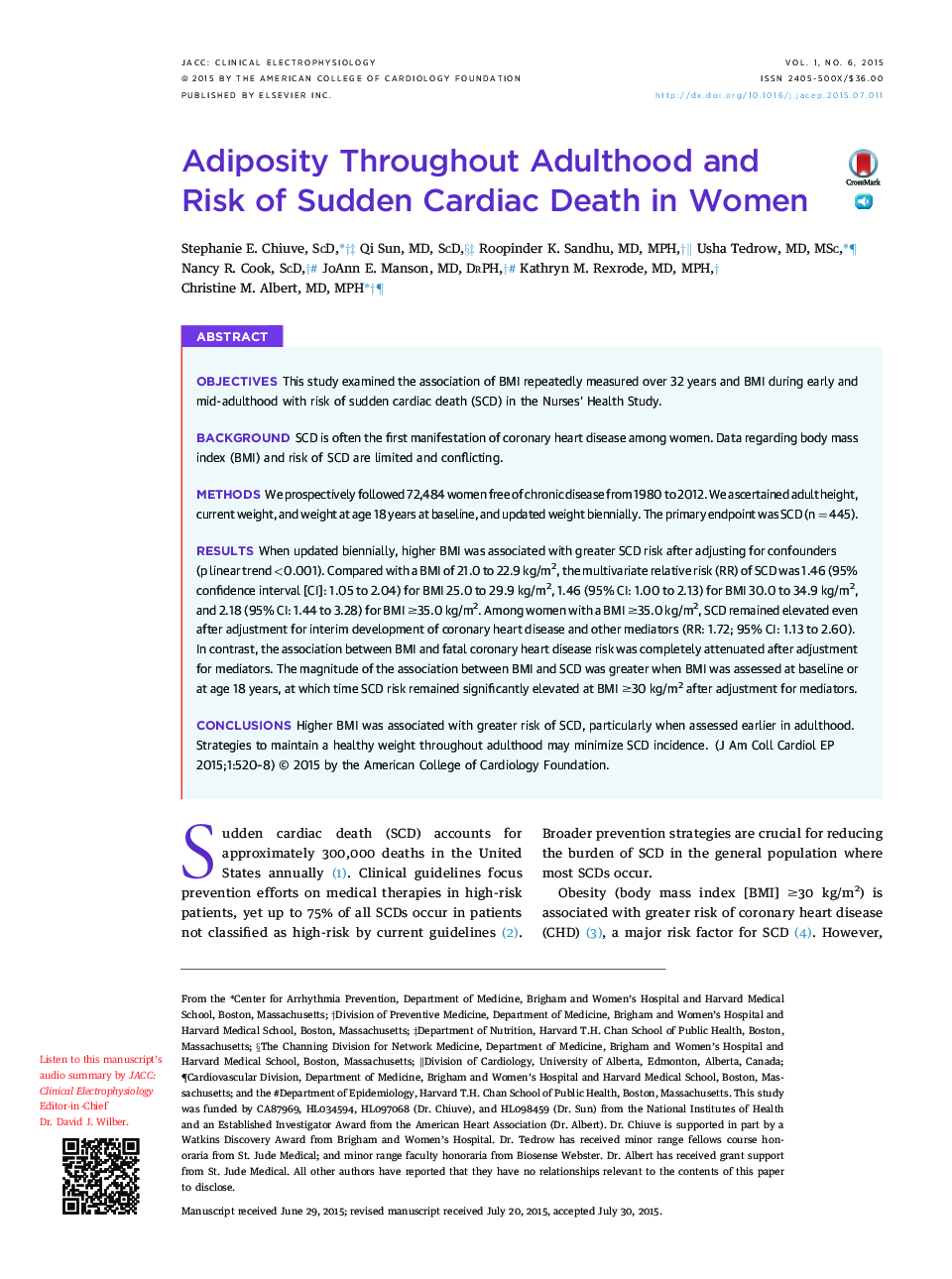| Article ID | Journal | Published Year | Pages | File Type |
|---|---|---|---|---|
| 2942268 | JACC: Clinical Electrophysiology | 2015 | 9 Pages |
ObjectivesThis study examined the association of BMI repeatedly measured over 32 years and BMI during early and mid-adulthood with risk of sudden cardiac death (SCD) in the Nurses’ Health Study.BackgroundSCD is often the first manifestation of coronary heart disease among women. Data regarding body mass index (BMI) and risk of SCD are limited and conflicting.MethodsWe prospectively followed 72,484 women free of chronic disease from 1980 to 2012. We ascertained adult height, current weight, and weight at age 18 years at baseline, and updated weight biennially. The primary endpoint was SCD (n = 445).ResultsWhen updated biennially, higher BMI was associated with greater SCD risk after adjusting for confounders (p linear trend <0.001). Compared with a BMI of 21.0 to 22.9 kg/m2, the multivariate relative risk (RR) of SCD was 1.46 (95% confidence interval [CI]: 1.05 to 2.04) for BMI 25.0 to 29.9 kg/m2, 1.46 (95% CI: 1.00 to 2.13) for BMI 30.0 to 34.9 kg/m2, and 2.18 (95% CI: 1.44 to 3.28) for BMI ≥35.0 kg/m2. Among women with a BMI ≥35.0 kg/m2, SCD remained elevated even after adjustment for interim development of coronary heart disease and other mediators (RR: 1.72; 95% CI: 1.13 to 2.60). In contrast, the association between BMI and fatal coronary heart disease risk was completely attenuated after adjustment for mediators. The magnitude of the association between BMI and SCD was greater when BMI was assessed at baseline or at age 18 years, at which time SCD risk remained significantly elevated at BMI ≥30 kg/m2 after adjustment for mediators.ConclusionsHigher BMI was associated with greater risk of SCD, particularly when assessed earlier in adulthood. Strategies to maintain a healthy weight throughout adulthood may minimize SCD incidence.
